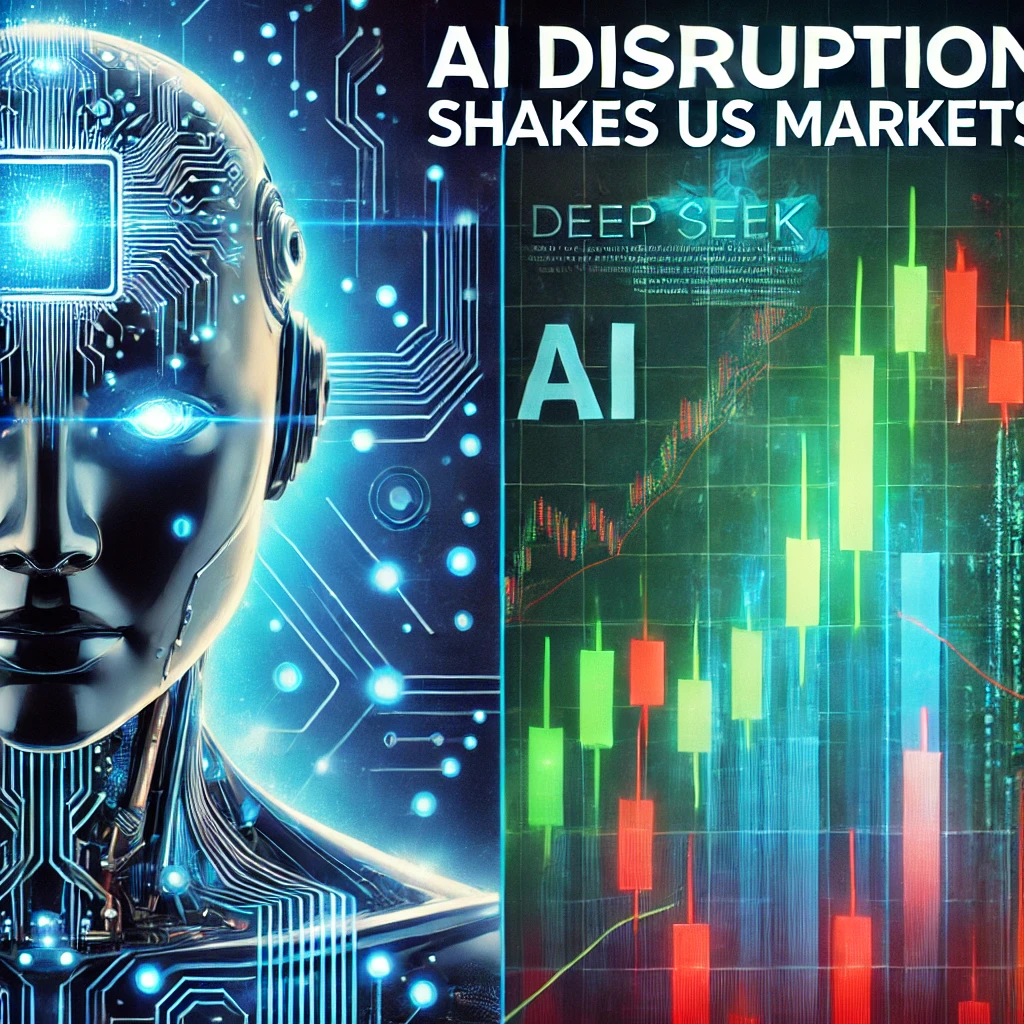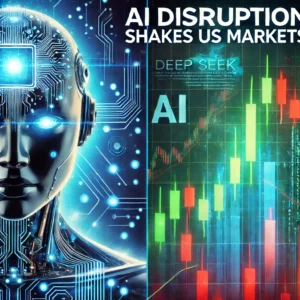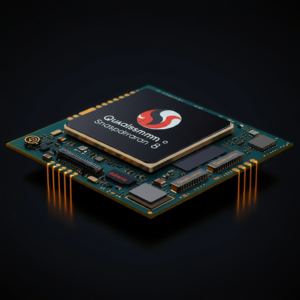The global artificial intelligence (AI) landscape experienced a seismic shift on January 27, 2025, with the breakthrough announcement from Chinese AI startup, DeepSeek. The launch of their cost-efficient generative AI model sent ripples through the U.S. stock market, sparking concerns about global AI competition and the future of American technology leadership. Let’s delve into what happened, the market’s reaction, and what this means for the future.
DeepSeek’s Groundbreaking Achievement
DeepSeek’s unveiling of their generative AI model, named R1, captured the attention of both the technology sector and the financial world. The model, which has been benchmarked against the world’s leading AI systems, demonstrated comparable performance while significantly undercutting the costs of development.
- Efficiency Redefined: DeepSeek utilized $5.58 million in resources, training R1 with approximately 2,000 chips over a span of 55 days. This achievement starkly contrasts with the tens or even hundreds of millions that U.S. companies like OpenAI, Google, and Microsoft have poured into similar projects.
- Strategic Impact: R1’s performance demonstrates that cutting-edge AI doesn’t necessarily require limitless funding. It also challenges assumptions regarding U.S. sanctions aimed at curbing China’s access to advanced AI technology.
Stock Market Reactions: Shockwaves Across Wall Street
The debut of DeepSeek’s R1 had immediate repercussions for U.S. tech stocks. Investors responded with caution, leading to a broad sell-off in technology shares.
Decline in Key Technology Stocks
- Nvidia: The leading supplier of AI chips saw its shares plunge nearly 17%. Nvidia has been a dominant player in powering AI models, and DeepSeek’s reliance on efficient, alternative methods raised concerns about future demand for high-end AI chips.
- Microsoft: As a major investor in AI technology and partner of OpenAI, Microsoft saw its stock dip by 2.5%. Investors expressed concerns about potential competition and the profitability of large-scale AI ventures.
- Alphabet (Google): Alphabet, another major player in the AI race, experienced a decline of over 4%. Analysts suggested that DeepSeek’s breakthrough may force U.S. companies to rethink their current approaches.
Indices Reflect Market Sentiment
- The Nasdaq Composite, heavily weighted with tech stocks, closed down by 3.1%.
- The S&P 500, a broader market index, fell by 1.5%, underscoring the widespread impact of the announcement.
Challenges to U.S. AI Dominance
DeepSeek’s progress highlights the intensifying global AI race, particularly between the U.S. and China. The startup’s ability to achieve high performance with minimal resources undermines several key assumptions:
Sanctions Effectiveness
U.S. efforts to limit China’s access to advanced AI chips and technology may not be as effective as previously believed. DeepSeek’s success indicates that innovation can occur despite hardware limitations.
Cost vs. Scale
U.S. firms have historically relied on large-scale funding and computing resources for AI breakthroughs. DeepSeek’s efficient model development suggests that smaller, more agile approaches could yield similar results, challenging the industry norm.
Investor Outlook: Adjusting to a New Reality
The stock market’s reaction reflects the growing realization that global AI competition could upend the current technology hierarchy. U.S. investors are now assessing both risks and opportunities in the sector.
Short-Term Impact
The sell-off indicates uncertainty, but it also underscores the need for U.S. companies to remain adaptive. A temporary dip in share prices could prompt further investment in research and development, as companies look to stay ahead in the global race.
Long-Term Implications
In the long term, the emergence of competitors like DeepSeek may lead to:
- Increased collaboration among U.S. tech firms to consolidate resources and expertise.
- Exploration of cost-effective AI development methods.
- Potential policy adjustments to address the evolving competitive landscape.
Future Trends in AI and Financial Markets
Looking ahead, several trends are likely to shape the trajectory of the AI industry and its impact on financial markets:
- Global Collaboration vs. Competition: While competition between the U.S. and China will remain fierce, there may also be opportunities for cross-border collaboration in areas like ethics and regulation.
- Focus on Efficiency: Companies will prioritize innovative methods that optimize both cost and performance, inspired by DeepSeek’s example.
- Policy Evolution: Governments may revisit policies on technology exports, intellectual property, and sanctions to ensure their effectiveness in a rapidly changing environment.
- Market Volatility: As AI innovations continue to disrupt industries, investors can expect ongoing volatility, particularly in tech-heavy sectors.
Conclusion: A Pivotal Moment in AI and Market Dynamics
The events of January 27, 2025, mark a turning point for the global AI industry and the U.S. stock market. DeepSeek’s emergence challenges long-held beliefs about the resources required for cutting-edge AI, while also highlighting vulnerabilities in U.S. dominance.
For investors and industry leaders, the path forward requires a balance of adaptability, innovation, and strategic foresight. The global AI race is far from over, and its outcome will shape not only technology but also the broader economic landscape for years to come.




